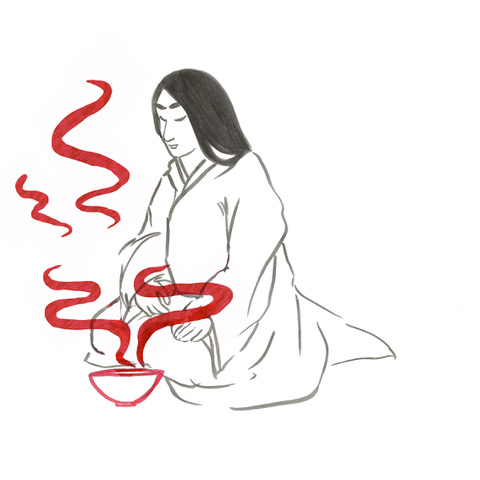Scent of Time
 © Alexandra Ciorciaro 2019
© Alexandra Ciorciaro 2019
Vroni Ammann, lic. phil.
This research project investigates the temporal aspects of the three main activities in the trade - production, distribution, and consumption - of fragrant materials in medieval Japan. Natural products and their seasonality, or seasonally limited trading possibilities, as well as other cyclic events (such as festivals), had a substantial impact on commercial activities in medieval Japan. Thus, cyclic time concepts influenced the economic value of incense as well as the creation of incense varieties and fragrances, which were typically associated with specific purposes and occasions. The storage stability of incense materials, on the other hand, supports linear time concepts, which affected market activities and suggest various effects on the temporal perspective of market participants. Not only the cyclic or linear duality but also natural cycles and cultural order as another approach leads to the assumption of variance in temporal concepts showing themselves in observed and commented conflicts. This leads to the question of how the medieval population faced occurring problems while planning and scheduling the necessary economic steps for trade.
To examine these issues, I build upon a selection of sources from medieval Japan containing information about incense, fragrance, and related goods like incense holders, or the special case of incense clocks, such as the so-called kōdokei. The latter serves as a particularly insightful subject-matter as it complements the investigation of the temporal aspects of economic activities with its purpose as a device for measuring time. This means that incense itself was a factor in the temporal organisation of the medieval Japanese society.
Incense and its numerous usages, as well as its references in a diverse corpus of medieval source material, makes for an excellent example in presenting evidence for simultaneously occurring time concepts, and in sketching the picture of medieval economic life.


